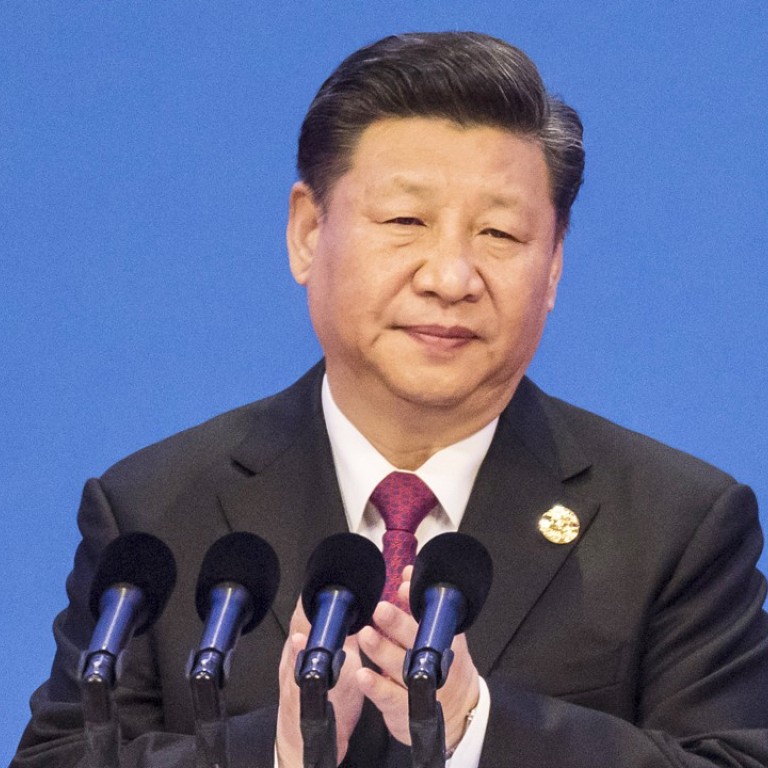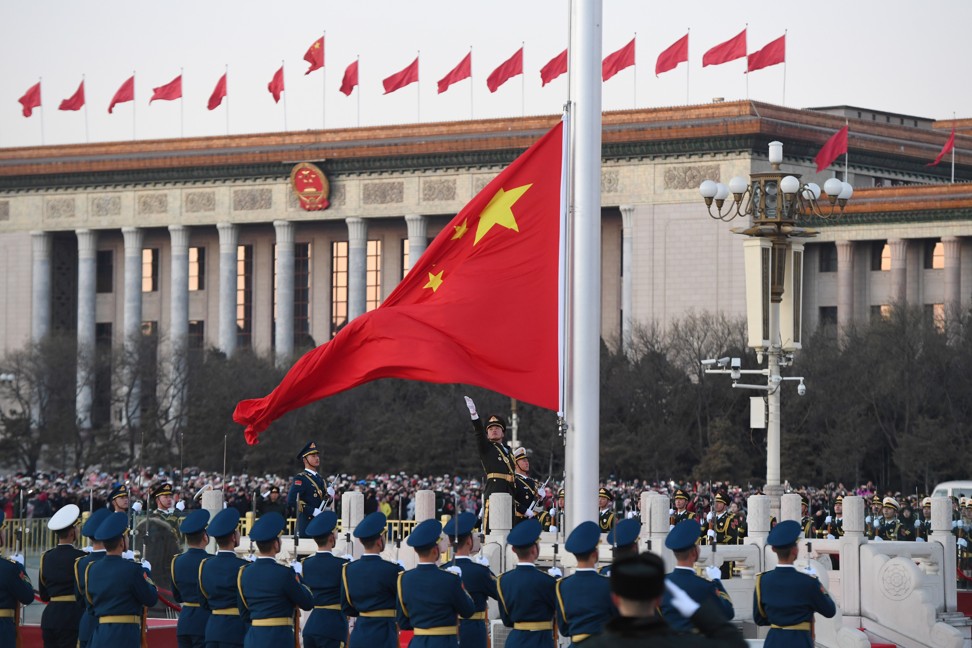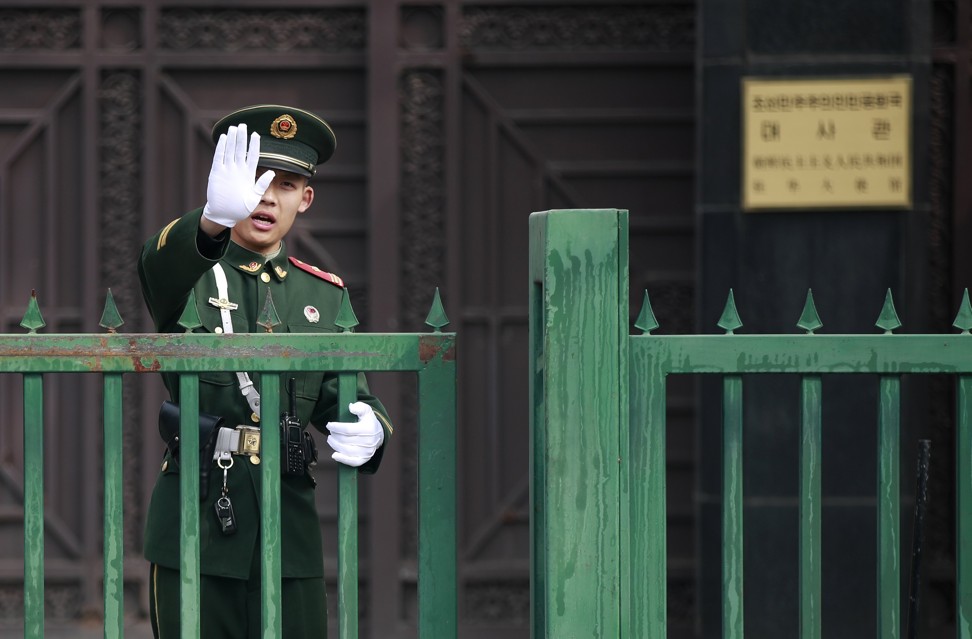
Xi Jinping claims progress on national security in meeting of secretive commission
President says it has ‘solved many problems that had long remained unsolved’
President Xi Jinping has told a top-level meeting that the ruling Communist Party is gaining “the upper hand” in its national security campaign.
“In the past four years, the National Security Commission … has solved many problems that had long remained unsolved, and achieved tasks that had long remained undone,” Xi said at a meeting of the commission on Tuesday.
“Work on national security has been strengthened. [The Commission] has firmly grabbed the upper hand in maintaining national security,” Xi was quoted as saying by Xinhua.
Xi’s remarks came as the party marked the fourth anniversary of the secretive commission, which was founded and is chaired by the president.
It was just the second time the commission has appeared in state media coverage, but there was no footage of the meeting, nor was it made known who attended apart from Xi, Premier Li Keqiang and head of the legislature, Li Zhanshu.
While its role in controversial policies like land reclamation in the South China Sea and Beijing’s crackdown on rights lawyers and activists remains unclear, the government describes it as a comprehensive body to coordinate Xi’s broad vision for national security.

His comments showed that Xi recognised the commission’s role in driving strategy on national security, according to Li Wei, an anti-terrorism expert at the China Institutes of Contemporary International Relations.
“The commission does not necessarily implement specific policies, but acts more like a strategy-making body behind the major decisions – including making a series of laws on national security,” Li said.
Beijing has passed a number of laws in the area of national security since the commission was founded in 2014, fuelling fears that China is tightening its grip on civil rights and political dissent, as well as becoming more assertive on foreign policy.
The wide-ranging national security law passed in 2015 goes beyond conventional areas to include financial security, the obligations of Hong Kong and Macau on national security, and the party’s ideological control.
China’s first counterterrorism law was introduced the same year and has provided a legal basis for overseas counterterrorism missions by the military and its paramilitary force.
The operations of foreign NGOs in China are meanwhile subject to tighter control in terms of their finances and personnel under a law covering their activities on the mainland that was passed last year.

Beijing has also tried to involve the public in this push, encouraging people to report any potential threat or suspects as part of a huge propaganda campaign to mark its third annual National Security Education Day on April 15.
Through online cartoons and banners in the streets, police and national security bureaus across the country have called on Chinese to turn in “suspicious foreigners”, giving examples of the types of cases they should watch out for.
A police advertisement used the case of a US teacher working in northeastern Jilin province as an example. The teacher was expelled from the country after he was reported by his students for discussing human rights in China, citing the Cultural Revolution – a decade of political and social upheaval started by Mao Zedong in 1966.
Underlining its role making strategy, the commission passed a directive on Tuesday for party cells at all levels to toe the line on national security policy, according to Xinhua. All party cells would be required to strengthen inspection on national security work, it said, without elaborating.

